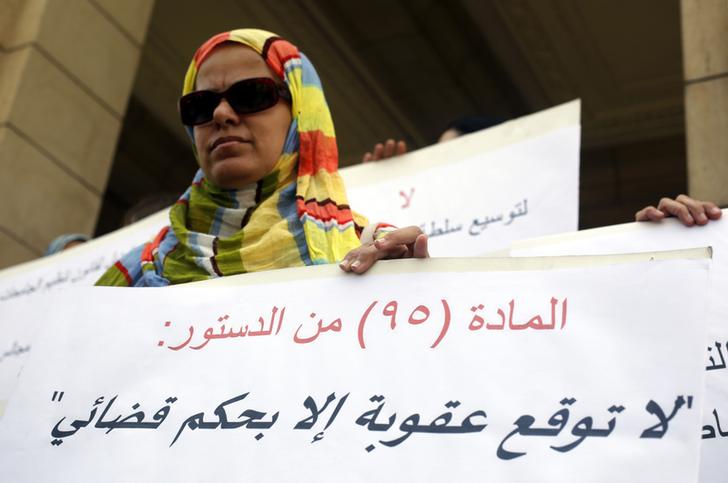Rights group expresses deep concern over amendments to universities law

CAIRO, Jan 20 (Aswat Masriya) – The Association for Freedom of Thought and Expression (AFTE) said recent amendments to the law governing universities are “marred by many unconstitutional” aspects, in a statement on Tuesday.
The amendments were made to Article 110 of the law, which details the grounds for isolating university faculty and staff. AFTE described the reasons stated in the article as “unspecified accusations”.
The rights group expressed deep concerns over what it described as the executive authority’s “terrorising” of faculty members. Following a presidential decree, the amendments were published in the country’s official gazette on January 15.
The article now stipulates that faculty and staff may be isolated if they are found to incite, participate or assist in violence that occurs on campus or any university facilities.
It also states that faculty and staff may be isolated for participation in partisan activities, among other reasons. AFTE criticised the law for not providing a clear definition of what constitutes as partisan activities or how they may disrupt the educational process. The NGO also said that this stipulation violates the constitution, which guarantees freedom of thought and expression in Article 65.
Faculty or staff members who are found to violate the law are referred to a disciplinary committee for investigation. Once they are investigated, they are suspended for a period no longer than six months and they are not allowed inside university premises, except during investigation.
AFTE said this violates the principle that a defendant is innocent until proven guilty, which is also stipulated in the Egyptian constitution. The amendments assign punishments once accusations are leveled and before a “conviction is legally made through a disciplinary committee”, the statement read.
Previously this article detailed grounds for isolating faculty members, but the scope of application was expanded to include other university staff, through the amendments.
AFTE asserted that these amendments which were made by the executive authority restrict academic freedoms and limit the room for discussion between teaching staff and students. It added that they open the door for accusing any professor who disagrees with the political system of inciting violence or any of the other charges stipulated in the law.
The rights group called for revoking the amendments immediately and for “halting procedures that target faculty members.”
In September, 2014, the cabinet approved a presidential decree amending the same law in a manner which allows university chairmen to expel faculty members who "commit crimes which disturb the educational process.”
University campuses have witnessed widespread student protests throughout this and the previous academic year. Protests often ended with violence as a result of clashes with security forces.









facebook comments